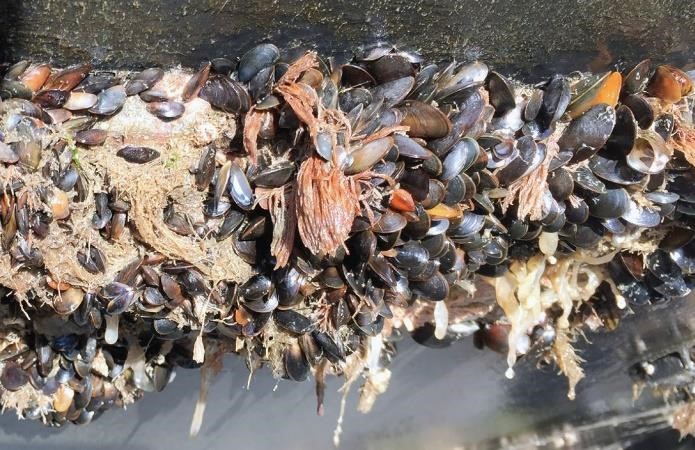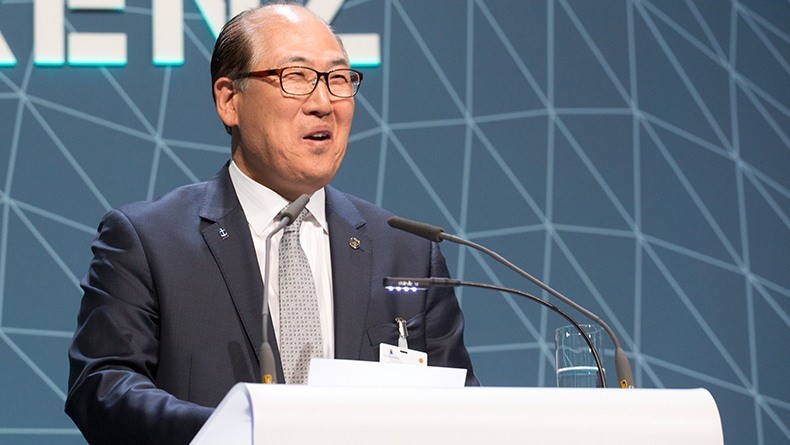UN entities, Sonihull and others join forces to tackle global biofouling
A ground-breaking Global Industry Alliance (GIA) has been launched to tackle two of the most pressing environmental issues of our time –invasive species and greenhouse gas (GHG) emissions. The GIA brings together stakeholders in the private sector and the GloFouling Partnerships, a project led by United Nations entities to address the transfer of harmful aquatic species through biofouling.

The new GIA will accelerate the development of solutions to improve the management of marine biofouling, which is the build-up of aquatic organisms on ships’ hulls or submerged structures such as platforms and aquaculture installations. Biofouling can lead to the introduction of potentially invasive species to new environments, where they may threaten native species and cause irreversible damage to biodiversity. It also has measurable impacts on a number of economic sectors such as fisheries, aquaculture and ocean energy. Once established in a new ecosystem, invasive species are extremely difficult if not impossible to eradicate.
The new Global Industry Alliance (GIA) for Marine Biosafety brings together private sector companies from various industries affected by biofouling, including shipping, aquaculture, offshore oil and gas and ocean renewable energies. These maritime champions will work together with the GloFouling Partnerships Project, a joint initiative between the Global Environment Facility (GEF), the United Nations Development Programme (UNDP) and the International Maritime Organization (IMO). The key aims of the GIA are to leverage human, technological and financial resources; facilitate industry input into policy developments and a positive pull for reform processes, and the development and dissemination of technological solutions to improve biofouling management.
The work of the GIA will also contribute to a significant reduction in greenhouse gas emissions. Biofouling increases the drag of ships, forcing them to burn more fuel to maintain speed. The new global alliance is expected to promote solutions to improve the hydrodynamic performance of ships and thereby contribute to a significant reduction of the carbon footprint of the shipping industry.
The GIA was officially inaugurated on 8 June during an online meeting attended by representatives of the founding industry members as well as IMO and UNDP.IMO Secretary-General Kitack Lim said the new alliance will, for the first time, bring together all maritime industries in finding solutions to two key environmental issues affecting our planet -protecting marine biodiversity and reducing greenhouse gas emissions.

“Under this new initiative, these industry champions, from different sectors, are coming together to address common challenges and move towards more sustainable use of ocean resources”
Kitack Lim
Andrew Hudson, Head of UNDP’s Water & Ocean Governance Programme, said:
“At UNDP we are very pleased to witness the creation of a new GIA that can help us all to work together to remove key barriers, whether they beinformational or technical, to transform maritime industries and channel their contribution towards achieving the targets of the Sustainable Development Goals and the reduction of greenhouse gas emissions from shipping.”
Andrew Hudson, Head of UNDP’s Water & Ocean Governance Programme
Four companies have become the founding members of theGlobal Industry Alliance for Marine Biosafety: CleanSubSea, ECOsubsea, HullWiperand Sonihull. It is expected that more companies will join the GIA.
Darren Rowlands, CEO of Sonihull, said:
“It is a privilege to sit at the top table with these maritime innovators. Together, we are showing what the future of anti-fouling looks like. Market conditions, legislation and operator requirements are all pushing in the same direction and together we hope to show all marine sectors the role that ultrasound will play in the zero-harm, biocide-free seascape.
Darren Rowlands, CEO of Sonihull.
Jose Matheickal, head of IMO’s Department for Partnerships and Projects, said:
“This alliance is about the collective pioneering efforts by all maritime industries in undertaking the fight against invasive species and all the creativity and innovations that are being brought to the table to develop technological solutions. Forging such an alliance among the current four founding partners lays the foundations of a potentially very large global partnership among maritime industry players.”
Jose Matheickal
The GEF-UNDP-IMO GloFouling Partnerships is a five-year global project aimed at protecting biodiversity by tackling the transfer of harmful aquatic species through biofouling in some of the developing regions of the world. The project encourages the sharing and adoption of technologies and innovative solutions that can improve biofouling management across all maritime industries and the energy efficiency of ships. www.glofouling.imo.org
UNDP – the United Nations Development Programme –partners with people at all levels of society to help build nations that can withstand crisis, and drive and sustain the kind of growth that improves the quality of life for everyone. On the ground in nearly 170 countries and territories, we offer a global perspective and local insight to help empower lives and build resilient nations. www.undp.org
IMO – the International Maritime Organization –is the United Nations specialized agency with responsibility for the safety and security of shipping and the prevention of marine pollution by ships. www.imo.org
Sonihull can solve global fouling time-bomb
As the world’s commercial marine fleet faces extended lay-ups, Sonihull is reacting to a surge in demand for low cost, low maintenance systems that can keep fouling at bay.
“Market uncertainty and a drop in fleet demand, especially in the passenger carrying sectors, is leading to large numbers of commercial vessels being laid-up alongside or at anchor,” explains Darren Rowlands, CEO of Sonihull, the Coventry-based company behind a market-leading anti-fouling system. Sonihull’s technology harnesses the power of ultrasound to prevent algae, weeds and molluscs form colonising man-made surfaces submerged in seawater.
“Our dealers in the warm waters of Australia have already started to react to a surge in calls from fast ferry operators. They need to get their vessels protected against the rigors of an undetermined lay-up period, so that they can be reactivated quickly without a long, expensive delay in drydock to clean the hull and remove blockages from the RSW cooling systems.”
Even without the lost revenue, drydocking is a very expensive business, which is why operators do everything they can to extend their intervals. With Sonihull systems fitted, weeds mussels and barnacles will not be able to thrive and operators will be able to respond quickly to changes in vessel demand without worrying about performance, speed, fuel-consumption or engine failure due to blocked cooling pipework.
Sonihull is still providing its regular global dispatch and fitting during the COVID-19 pandemic. “There is no welding or cutting required during installation and whole systems can be fitted in under a day. This really sets us apart from other systems during these times of social distancing,” added Rowlands. “Our technicians can be in and out very quickly, the job can be done at anchor or even when the vessel is operating if necessary.”
“With very low power consumption (<30 Watts for a Sonihull 8 system with eight transducers) the systems are very low maintenance, the perfect solution to a potentially crippling fouling epidemic.”